SWEDISH
SOUTH ASIAN STUDIES NETWORK
Newsletter 87:
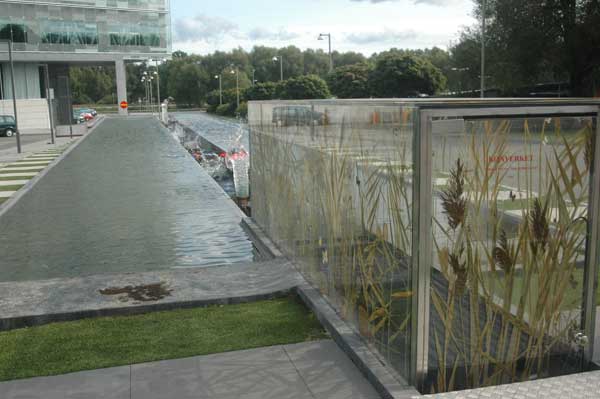 21 August 2008
21 August 2008
| Educational News |
| Politics and Business |
| South Asia related Culture |
| New and updated information |
• 52 applications for SASNET grants
 52 applications were
received for the 2008 round of SASNET Planning Grants. Last
date for applications was 15 June 2008. Out of the 52
applications, 2 refer to continued networking for research programmes/projects,
29 for planning new research programmes/projects, and 2 for new educational projects. Another 9
applications refer to Interdisciplinary Workshop Grants (for organising
a South Asia related research workshop in Sweden or in South Asia);
and finally 10 applications refer to the Guest Lecture Programme
(for inviting a guest lecturer from South Asia, to give lectures
at more than one Swedish university). The applications
will now be screened by a reference group consisting
of three eminent Nordic South Asia scholars, and final decisions
be taken by the SASNET board on its next meeting Tuesday 26 August
2008. Total amount to distribute,
will be SEK 957 000. More information.
52 applications were
received for the 2008 round of SASNET Planning Grants. Last
date for applications was 15 June 2008. Out of the 52
applications, 2 refer to continued networking for research programmes/projects,
29 for planning new research programmes/projects, and 2 for new educational projects. Another 9
applications refer to Interdisciplinary Workshop Grants (for organising
a South Asia related research workshop in Sweden or in South Asia);
and finally 10 applications refer to the Guest Lecture Programme
(for inviting a guest lecturer from South Asia, to give lectures
at more than one Swedish university). The applications
will now be screened by a reference group consisting
of three eminent Nordic South Asia scholars, and final decisions
be taken by the SASNET board on its next meeting Tuesday 26 August
2008. Total amount to distribute,
will be SEK 957 000. More information.
• Supplementary Workshop Grants available
Besides the ordinary planning grants – distributed once a year – SASNET also has a supplementary form of small workshop grants. These smaller workshop grants can be applied for throughout the year, and the decision making process is faster than and separate from other SASNET grants. Only students, researchers, and teachers based at Swedish universities and university colleges are eligible to apply, and the maximum amount is SEK 15 000 (including administrative costs). The aim of these supplementary workshop grants is to facilitate collaboration between Swedish scholars in the field of South Asian Studies. It is specifically intended to support young researchers in initiating new academic projects or assist them to be brought into contact with established researchers and networks. A maximum of SEK 75,000 will be distributed during 2008. Please note that the workshop should be held within Sweden.
• The SASNET Student Forum now launched
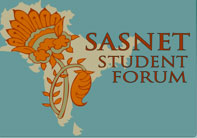 This interactive web forum provides a meeting point for research students interested in South Asia. Both experienced researchers and beginners are welcome to participate in the forum discussions, and the aim is to create a forum including both discussions on academic topics and on practical issues concerning travelling, studying and doing research in India. The forum primarily aims at MA and PhD students in South Asia related disciplines, but others are welcome to join the discussions as well. SASNET student forum is the first step towards creating a sub-network for MA and PhD students interested in South Asian studies. It has been created by PhD Candidate Malin Gregersen, Dept. of History, Lund University. The ambition is to become a vivid meeting ground where students can exchange experiences, discuss research, share information about conferences, seminars and workshops, and become aware of each other’s existence. When the forum has been consolidated it will be expanded to include for example a calendar and a space where one can upload articles and dissertations. Meanwhile space will be provided within the forum for such topics. Go to the SASNET Student Forum.
This interactive web forum provides a meeting point for research students interested in South Asia. Both experienced researchers and beginners are welcome to participate in the forum discussions, and the aim is to create a forum including both discussions on academic topics and on practical issues concerning travelling, studying and doing research in India. The forum primarily aims at MA and PhD students in South Asia related disciplines, but others are welcome to join the discussions as well. SASNET student forum is the first step towards creating a sub-network for MA and PhD students interested in South Asian studies. It has been created by PhD Candidate Malin Gregersen, Dept. of History, Lund University. The ambition is to become a vivid meeting ground where students can exchange experiences, discuss research, share information about conferences, seminars and workshops, and become aware of each other’s existence. When the forum has been consolidated it will be expanded to include for example a calendar and a space where one can upload articles and dissertations. Meanwhile space will be provided within the forum for such topics. Go to the SASNET Student Forum.
• Maria Tonini updates SASNET web pages
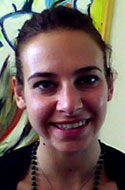 From 1 July 2008, Maria Tonini is working on a voluntary basis as an assistant for SASNET. Ms. Tonini is an Italian citizen who recently moved to Sweden. She completed a Masters degree in Critical Media and Cultural Studies from the the School of Oriental and African Studies (SOAS), University of London in 2006, and then worked as a Researcher and Online Editor for the Ethnic Multicultural Media Academy in London. Recently she has also worked as Fundraising Assistant for the Indian National Trust For Art and Cultural Heritage (INTACH) in Pondicherry, India. Maria Tonini is currently engaged in SASNET’s ongoing work to update our web pages with information about Swedish university departments with South Asia related research and education (now 230 institutions).
From 1 July 2008, Maria Tonini is working on a voluntary basis as an assistant for SASNET. Ms. Tonini is an Italian citizen who recently moved to Sweden. She completed a Masters degree in Critical Media and Cultural Studies from the the School of Oriental and African Studies (SOAS), University of London in 2006, and then worked as a Researcher and Online Editor for the Ethnic Multicultural Media Academy in London. Recently she has also worked as Fundraising Assistant for the Indian National Trust For Art and Cultural Heritage (INTACH) in Pondicherry, India. Maria Tonini is currently engaged in SASNET’s ongoing work to update our web pages with information about Swedish university departments with South Asia related research and education (now 230 institutions).
• SASNET seminar with Christina Nygren and baul singers from Bangladesh
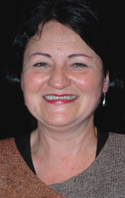 Dr. Christina Nygren from the Dept. of Musicology and Theatre Studies,
Stockholm University, will hold a SASNET seminar on baul music and other forms of Bengali folk culture in Lund on Tuesday 26 August, 15.00–17.00. The seminar, titled ”Guds vildhjärnor – med ständig strävan att finna hjärtats sanna natur”, is organised in connection with a concert held later the same day by a group of Bangladeshi baul singers and musicians, calling themselves ”God’s scapegraces” (Guds vildhjärnor) that has been invited to Sweden by Dr. Nygren (more information about the performance). Dr. Nygren, who in 2006 wrote a wonderful book on the topics titled ”Brokiga Bengalen”, will talk about the history of baul music and the wandering minstrels in the Bengali countryside (both in India and Bangladesh), their poetry and music. The four baul singers Kajal Dewan,
Akkas Dewan,
Aklima Begam and Nasima Dewan will participate in the seminar that will be held at Teater Sagohuset, Revingegatan 8, Lund. More information about the seminar.
Dr. Christina Nygren from the Dept. of Musicology and Theatre Studies,
Stockholm University, will hold a SASNET seminar on baul music and other forms of Bengali folk culture in Lund on Tuesday 26 August, 15.00–17.00. The seminar, titled ”Guds vildhjärnor – med ständig strävan att finna hjärtats sanna natur”, is organised in connection with a concert held later the same day by a group of Bangladeshi baul singers and musicians, calling themselves ”God’s scapegraces” (Guds vildhjärnor) that has been invited to Sweden by Dr. Nygren (more information about the performance). Dr. Nygren, who in 2006 wrote a wonderful book on the topics titled ”Brokiga Bengalen”, will talk about the history of baul music and the wandering minstrels in the Bengali countryside (both in India and Bangladesh), their poetry and music. The four baul singers Kajal Dewan,
Akkas Dewan,
Aklima Begam and Nasima Dewan will participate in the seminar that will be held at Teater Sagohuset, Revingegatan 8, Lund. More information about the seminar.
• Parul Sharma holds SASNET lecture about Human Rights in South Asia
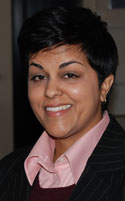 Parul Sharma, CSR Advisor,
Group Assurance,
Sandvik AB, will hold a SASNET lecture at Lund University on Wednesday 10 September 2008, 13–15. The lecture is titled ”A Globalised South Asia and Human Rights”. She will talk about how a current increased interest in the role of business operations in society has been promoted by heightened business debates about human rights conditions in the South Asian region. Consumers have become sensitive to the CSR (Corporate Social Responsibility) performance of the companies from which they buy their goods and services. These trends have contributed to the pressure on companies to operate in an economically, socially and environmentally sustainable way. Issues like environmental damage, improper treatment of workers, and faulty production leading to customers' inconvenience or danger, are highlighted in the media. Some investors and investment fund managers have begun to take account of a corporation's CSR policy in making investment decisions. Ms. Sharma is to some extent connected to the Dept. of Law, Stockholm University. The lecture is held in collaboration with the Masters programme in Asian studies at Lund University’s Centre for East and South-East Asian Studies (ACE). Venue: Java Hall, ACE, Scheelevägen 15 C (next to the Asia Library), Lund. More information about the seminar.
Parul Sharma, CSR Advisor,
Group Assurance,
Sandvik AB, will hold a SASNET lecture at Lund University on Wednesday 10 September 2008, 13–15. The lecture is titled ”A Globalised South Asia and Human Rights”. She will talk about how a current increased interest in the role of business operations in society has been promoted by heightened business debates about human rights conditions in the South Asian region. Consumers have become sensitive to the CSR (Corporate Social Responsibility) performance of the companies from which they buy their goods and services. These trends have contributed to the pressure on companies to operate in an economically, socially and environmentally sustainable way. Issues like environmental damage, improper treatment of workers, and faulty production leading to customers' inconvenience or danger, are highlighted in the media. Some investors and investment fund managers have begun to take account of a corporation's CSR policy in making investment decisions. Ms. Sharma is to some extent connected to the Dept. of Law, Stockholm University. The lecture is held in collaboration with the Masters programme in Asian studies at Lund University’s Centre for East and South-East Asian Studies (ACE). Venue: Java Hall, ACE, Scheelevägen 15 C (next to the Asia Library), Lund. More information about the seminar.
• More information about SASNET and its
activities
See SASNET’s page, http://www.sasnet.lu.se/sasnet.html
• Swedish universities to coordinate Erasmus Mundus External Cooperation Window programmes
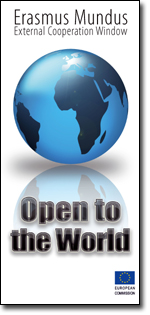 On Friday 13 June 2008, the European Commission’s Education, Audiovisual and Culture Executive Agency (EACEA) decided to give the responsibility for the Erasmus Mundus External Cooperation Window programme (EMECW) lot No 12 to a consortium comprising of 16 universities, eight in Europe and eight in South Asia. A Swedish university, Mälardalen University (Mälardalens högskola) in Västerås, will coordinate the programme, with a mobility flow of 320 fully funded students, researchers and academic staff per year. The project coordinator is Prof. Sasikumar Punnekat, School of Innovation, Design and Engineering at Mälardalen University. Uppsala University is also member of this selected consortium. The lot has got a changed geographical focus, excluding Afghanistan and Bhutan that originally should have been included, but now including universities in Pakistan, Nepal, India and Sri Lanka. See the full list of partners in the EMECW lot 12.
On Friday 13 June 2008, the European Commission’s Education, Audiovisual and Culture Executive Agency (EACEA) decided to give the responsibility for the Erasmus Mundus External Cooperation Window programme (EMECW) lot No 12 to a consortium comprising of 16 universities, eight in Europe and eight in South Asia. A Swedish university, Mälardalen University (Mälardalens högskola) in Västerås, will coordinate the programme, with a mobility flow of 320 fully funded students, researchers and academic staff per year. The project coordinator is Prof. Sasikumar Punnekat, School of Innovation, Design and Engineering at Mälardalen University. Uppsala University is also member of this selected consortium. The lot has got a changed geographical focus, excluding Afghanistan and Bhutan that originally should have been included, but now including universities in Pakistan, Nepal, India and Sri Lanka. See the full list of partners in the EMECW lot 12.
A decision has also been taken regarding the EMECW lot 15 focusing on Europe and India. A consortium consisting of 12 universities in Europe and 8 universities in India, was selected for funding by EACEA on 13 June. The consortium is coordinated by Lund University, and SASNET has been instrumental in facilitating the application. The publication of the result is however still pending upon the signature of a Financing Agreement between the European Commission and the Government of India, and no contractualisation process for this selected partnership, with a mobility flow of 400 fully funded students, researchers and academic staff per year, can start without a formal and final decision from the Commission. More information.
The call for proposals also included an Asian partnership lot including Bangladesh and Maldives (lot 13), but no partnerships were selected by EACEA due to the insufficient quality of the project proposals submitted.
Since 2004, the European Commission (EC) has run the successful Erasmus Mundus Programme, a flagship programme aimed at promoting the attractiveness of the European Higher Education system and third country cooperation and partnerships (more information about the programme).
In 2007, the EC introduced an additional mobility scheme titled Erasmus Mundus External Cooperation Window (EMECW), designed to foster co-operation between higher education
institutions and the exchange of students, researchers and academic staff from EU Member States
and targeted so-called Third-countries. It complements current and previous schemes such as Tempus, ALFA, AsiaLink, Alban, Edulink, Erasmus, and the general Erasmus Mundus, providing funds for the organisation and implementation of student – from undergraduate to post-doctorate level – and academic staff mobility flows.
Full information about the EMECW programme, including the Call for proposals.
• Call for specific External Cooperation Window Asian Region programme
![]() On 23 July 2008, another Call for proposals was announced by EACEA for an External Cooperation Window Asian Region programme, specifically targeted to promote cooperation between higher education institutions and the exchange of students, researchers and academic staff from EU member states with countries in the so-called Asia Regional window (including all nations of South Asia). Any proposal for this programme should include universities in Afghanistan,
Bangladesh,
Bhutan,
Cambodia,
Myanmar/Burma,
Nepal and
Pakistan, but universities in a number of optional countries may also be included. India, Maldives and Sri Lanka are optional countries in South Asia (the other Asian countries being China, Indonesia, Malaysia, North Korea, Philippines and Thailand). Deadline for submission of proposals to this Asian Region programme, involving a mobility flow of 360 individuals, is Friday 31 October 2008. In this case all individual mobility must start at the latest by 1 September 2009.
Just like the other programmes mentioned above, the scheme for this programme could run for three years. The Agency plans to announce the award decision by the end of November 2008. Full information about the EMECW Asian Region programme, including the Call for proposal.
On 23 July 2008, another Call for proposals was announced by EACEA for an External Cooperation Window Asian Region programme, specifically targeted to promote cooperation between higher education institutions and the exchange of students, researchers and academic staff from EU member states with countries in the so-called Asia Regional window (including all nations of South Asia). Any proposal for this programme should include universities in Afghanistan,
Bangladesh,
Bhutan,
Cambodia,
Myanmar/Burma,
Nepal and
Pakistan, but universities in a number of optional countries may also be included. India, Maldives and Sri Lanka are optional countries in South Asia (the other Asian countries being China, Indonesia, Malaysia, North Korea, Philippines and Thailand). Deadline for submission of proposals to this Asian Region programme, involving a mobility flow of 360 individuals, is Friday 31 October 2008. In this case all individual mobility must start at the latest by 1 September 2009.
Just like the other programmes mentioned above, the scheme for this programme could run for three years. The Agency plans to announce the award decision by the end of November 2008. Full information about the EMECW Asian Region programme, including the Call for proposal.
• Focus on santitation at the 2008 World Water Week in Stockholm
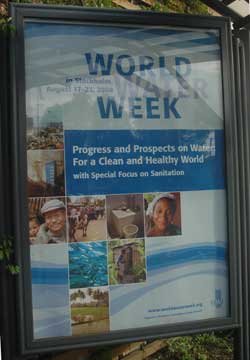 The
2008 World Water Week in Stockholm places special focus
on sanitation, health and hygiene issues – the theme being "Progress
and Prospects on Water: For a Clean and Healthy
World." The 2008 World Water Week, held 17–23 August, is organised by the Stockholm International Water Institute (SIWI), the leading annual global meeting place for capacity-building,
partnership-building and follow-up on the implementation of international
processes and programmes in water and development, with large relevance
to South Asia. It is filled with plenary sessions, seminars, workshops,
side events and special activities. The Scientific Programme Committee (SPC) planning for the conference is chaired by Prof. Jan Lundqvist, Dept. of Water and Environmental Studies, Linköping University. The World
Water Week 2008 takes place in a new venue, the Stockholm
International Fairs and Congress Center (Stockholmsmässan) in Älvsjö, 9 km south of central Stockholm. Full
information about the World Water Week 2008.
The
2008 World Water Week in Stockholm places special focus
on sanitation, health and hygiene issues – the theme being "Progress
and Prospects on Water: For a Clean and Healthy
World." The 2008 World Water Week, held 17–23 August, is organised by the Stockholm International Water Institute (SIWI), the leading annual global meeting place for capacity-building,
partnership-building and follow-up on the implementation of international
processes and programmes in water and development, with large relevance
to South Asia. It is filled with plenary sessions, seminars, workshops,
side events and special activities. The Scientific Programme Committee (SPC) planning for the conference is chaired by Prof. Jan Lundqvist, Dept. of Water and Environmental Studies, Linköping University. The World
Water Week 2008 takes place in a new venue, the Stockholm
International Fairs and Congress Center (Stockholmsmässan) in Älvsjö, 9 km south of central Stockholm. Full
information about the World Water Week 2008.
Since the 2008 World Water Week put a special focus on Water and Sanitation in Asia, Tuesday 19 August was declared to be the Asia Water Day, with a full day seminar convened by the Asian Development Bank (ADB). Several other institutions were also involved as co-convenors, such as the Asia-Pacific Water Forum (APWF), the International Water Association (IWA), the International Water Management Institute (IWMI), the Global Water Partnership (GWP), and the South Asia Water Utilities Network (SAWUN). The Asia Day focused on celebrating the reforms and innovations taking place in the region’s water sector, revealing new or improved solutions to Asia’s longstanding water issues, and discussed the remaining challenges.
 Dr. Almud Weitz (photo), Regional team leader for the Water and Sanitation Programme (WSP) for East Asia, desribed in her presentation the state of neglect regarding sanitation and sewreage treatment in Asian countries, but also which means to use in order to influence decision makers to improve the situation. Guy Hutton, an economist also working for WSP, presented interesting facts about the disastrous economic impacts of lacking sanitation, impacts that both can be measured in money as well as immeasurable loss of time and comfort. In the evening the Asia Water Day was concluded with a panel discussion on ”Asia’s Rapid Economic Growth and its Impact on Water Resources and Services”. SASNET’s deputy director Lars Eklund participated in the Asia Day seminar. More information.
Dr. Almud Weitz (photo), Regional team leader for the Water and Sanitation Programme (WSP) for East Asia, desribed in her presentation the state of neglect regarding sanitation and sewreage treatment in Asian countries, but also which means to use in order to influence decision makers to improve the situation. Guy Hutton, an economist also working for WSP, presented interesting facts about the disastrous economic impacts of lacking sanitation, impacts that both can be measured in money as well as immeasurable loss of time and comfort. In the evening the Asia Water Day was concluded with a panel discussion on ”Asia’s Rapid Economic Growth and its Impact on Water Resources and Services”. SASNET’s deputy director Lars Eklund participated in the Asia Day seminar. More information.
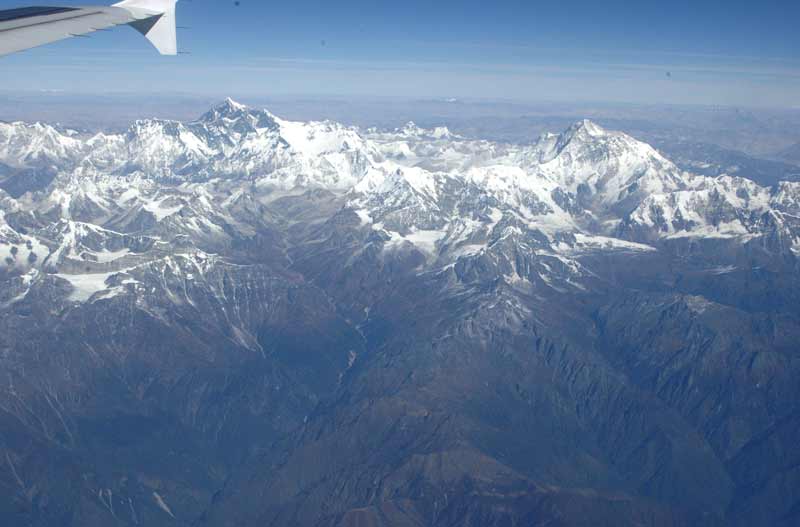 Another important South Asia related seminar was held on Thursday 21 August, titled ”The Himalayan Water Towers – Resources Under Threat?”. It was convened by the International Centre for Integrated Mountain Development (ICIMOD) in Kathmandu, and World Agroforestry Centre, China (ICRAF-China). It focusesed on the fact that the greater Himalayan region has an area drain through nine of the largest rivers in Asia, in which basins more than 1.3 billion people find their livelihoods. The region and its water resources play an important role in global atmospheric circulation, biodiversity, irrigated agriculture, potential hydropower, as well as for the production of commodities exported to markets worldwide. The water resources of this region are currently facing threats from a multitude of driving forces. Global warming is severely impacting on the amount of snow and ice and thereby on downstream water availability in short and long term. The seminar was chaired by Dr Andreas Schild, Director General for ICIMOD. Representatives from all Himalayan nations participated in the seminar to talk about the impacts of climate change on the water resources and hydropower in their respective countries. They included Dr. Rakhshan Roohi, Water Resources Research Institute (WRRI), National Agriculture Research Centre in Pakistan; Mr. Dipak Gyawali, Nepal Academy of Science and Technology; and H.E. Dasho Sonam Tshering, Ministry of Economic Affairs, Bhutan. More information about the seminar.
Another important South Asia related seminar was held on Thursday 21 August, titled ”The Himalayan Water Towers – Resources Under Threat?”. It was convened by the International Centre for Integrated Mountain Development (ICIMOD) in Kathmandu, and World Agroforestry Centre, China (ICRAF-China). It focusesed on the fact that the greater Himalayan region has an area drain through nine of the largest rivers in Asia, in which basins more than 1.3 billion people find their livelihoods. The region and its water resources play an important role in global atmospheric circulation, biodiversity, irrigated agriculture, potential hydropower, as well as for the production of commodities exported to markets worldwide. The water resources of this region are currently facing threats from a multitude of driving forces. Global warming is severely impacting on the amount of snow and ice and thereby on downstream water availability in short and long term. The seminar was chaired by Dr Andreas Schild, Director General for ICIMOD. Representatives from all Himalayan nations participated in the seminar to talk about the impacts of climate change on the water resources and hydropower in their respective countries. They included Dr. Rakhshan Roohi, Water Resources Research Institute (WRRI), National Agriculture Research Centre in Pakistan; Mr. Dipak Gyawali, Nepal Academy of Science and Technology; and H.E. Dasho Sonam Tshering, Ministry of Economic Affairs, Bhutan. More information about the seminar.
Parallel to the 2008 World Water Week in Stockholm, the Stockholm International Water Institute (SIWI) hosts the global exhibition "sanitation-is-dignity" at Norrmalmstorg in the centre of Stockholm, as an effort to raise public awareness on sanitation as an important development issue.
The exhibition, created by the German Toilet Organization, was inaugurated on Saturday 16 August, and continue until Saturday 23 August. It is organised by SIWI in cooperation with the African Medical and Research Foundation (AMREF), Karolinska Institutet, Sida, SEI/EcoSanRes, Swedish Water House, UNICEF Sweden and UNDP Water Governance Facility at SIWI. More information.
![]() In connection to the 2008 Stockholm Water Week, the Swedish International Development Cooperation Agency Sida has decided to invest SEKL 45 m. in the Global Sanitation Fund raised by the Water Supply and Sanitation Collaborative Council (WSSCC), an organisation formally created in 1990 through a United Nations General Assembly resolution, with a role to serve as an international coordinating body to enhance collaboration in the water supply and sanitation sector, specifically in order to attain universal coverage of water and sanitation services for poor people around the world. More information.
In connection to the 2008 Stockholm Water Week, the Swedish International Development Cooperation Agency Sida has decided to invest SEKL 45 m. in the Global Sanitation Fund raised by the Water Supply and Sanitation Collaborative Council (WSSCC), an organisation formally created in 1990 through a United Nations General Assembly resolution, with a role to serve as an international coordinating body to enhance collaboration in the water supply and sanitation sector, specifically in order to attain universal coverage of water and sanitation services for poor people around the world. More information.
• Prominent South Asian journalists at the Global Investigative Journalism Conference
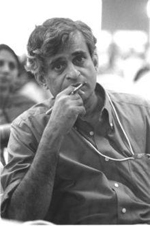
![]() Several prominent South Asian investigative journalists will participate in the fifth Global Investigative Journalism Conference to be held at Lillehammer, Norway 11–14 September 2008. The conference is organised by the Global Investigative Journalism Network, a group of independent journalism organizations that support the training and sharing of information among journalists in investigative and computer-assisted reporting. Among the topics to be discussed are the so-called ”War on Terror” and what happened to journalism after 9/11. A second theme will be ”Follow the money”, dealing with public and private corruption, and the last day of the conference will be devoted to the two major issues of ”Climate change & environment” and ”Ethics – Will you risk it?” respectively.
Several prominent South Asian investigative journalists will participate in the fifth Global Investigative Journalism Conference to be held at Lillehammer, Norway 11–14 September 2008. The conference is organised by the Global Investigative Journalism Network, a group of independent journalism organizations that support the training and sharing of information among journalists in investigative and computer-assisted reporting. Among the topics to be discussed are the so-called ”War on Terror” and what happened to journalism after 9/11. A second theme will be ”Follow the money”, dealing with public and private corruption, and the last day of the conference will be devoted to the two major issues of ”Climate change & environment” and ”Ethics – Will you risk it?” respectively.
During this session, the Indian journalist Palagummi Sainath (photo) from The Hindu in Chennai will discuss the large number of Indian farmers that have committed suicide in the past ten years, and why the media has failed to report their distress. Vinod Raja from Grassroots Media in India will present his documentary film ”Mining on tribal land in Orissa”, and the Bangladeshi prize winning photographer G.M.B Akash will speak about ”Investigative journalism with a camera”. Akash focuses his lenses on the poor and most stigmatized in his region. Other South Asian participants to the Lillehammer conference include Kavita Joshi from India, Massoud Ansari from Pakistan, Ghanashuam Ojha from Nepal, Darryl D'Monte, representing the International Federation of Environmental Journalists in India, and Massoud Qiam working for Tolo TV in Afghanistan. More information about the Lillehammer conference.
• Asian Dynamics Initiative to be launched at University of Copenhagen
 The University of Copenhagen has decided to launch the Asian Dynamics Initiative (ADI), a new interdisciplinary cross-faculty Asia focus. ADI aims at creating a common platform for the study of social, economic, political, cultural, and religious complexities in Asia.
The University of Copenhagen has decided to launch the Asian Dynamics Initiative (ADI), a new interdisciplinary cross-faculty Asia focus. ADI aims at creating a common platform for the study of social, economic, political, cultural, and religious complexities in Asia.
The overall purpose of the initiative is to strengthen and develop research and teaching on modern Asia at the University of Copenhagen through interdisciplinary research activities, courses, seminars and workshops. The Asian Dynamics Initiative revolves around a number of themes that have been identified as anchor points for cutting edge research and teaching between the Social Sciences and the Humanities. The seven themes are: •
Knowledge in transit; • Security at global and local levels; • Borders, territorialisation and regionalization; • Belonging, citizenship and identities; • Local responses to global challenges; • The economics of the Asian challenge; and • Political institutions and cultures. More information through the new Asian Dynamics Initiative hompage.
Cross-disciplinary topics such as nationalism, environment, climate change, media, religion, minority groups, gender and migration will be integrated in all the above mentioned anchor points.
With the launch of ADI, the University of Copenhagen aims to strengthen its position as a major strategic source of knowledge regarding Asian societies and communities, and five new full professorial positions have been announced within the initiative:
– Professorship in Modern Indian/South Asian studies.
– Professorship in Asian Security Studies.
– Professorship in International Economics with focus on Globalization and Emerging Asian Economies.
– Professorship in the Anthropology of Asia.
– Professorship in Western China/Central Asia.
To mark the Asian Dynamics Initiative's kick-off, the University of Copenhagen is hosting a high profile conference in Festsalen, Frue Plads on Tuesday 16 September 2008, 13.30–17.30. The conference 'Asia in the 21st century – New perspectives' is jointly organised by ADI and the Nordic Institute of Asian Studies (NIAS), that at the same time celebrates its 40th anniversary. Lykke Friis, Vice Chancellor, University of Copenhagen and Per Stig Møller, the Danish Foreign Minister will be opening the conference, and four leading international scholars on Asia will deliver the keynote speeches addressing a range of topics that mark Asia in the 21st century. They include Professor Gayatri C. Spivak, Columbia University, USA, who will talk about ”The Subject of an Asian Culture”; and Dr. Ramachandra Guha, Bangalore, India (but currently Arne Naess Professor at the University of Oslo, Norway) who will talk about ”Will India Become a Superpower?”. Go for the 'Asia in the 21st Century – New Perspective' conference.
• Nordic Summer University launches three-year South Asian programme
![]() ”South Asia in the 21st Century:
Explorations in Multidisciplinary Methodology” has become
the theme for a new Nordic Summer
University (NSU) programme for the period 2009-11. For more than 50 years NSU has been known to develop academic and intellectual debates that has involved several leading intellectuals, politicians, and scholars of the Nordic countries. The organization is sponsored by the Nordic Council of Ministers.
”South Asia in the 21st Century:
Explorations in Multidisciplinary Methodology” has become
the theme for a new Nordic Summer
University (NSU) programme for the period 2009-11. For more than 50 years NSU has been known to develop academic and intellectual debates that has involved several leading intellectuals, politicians, and scholars of the Nordic countries. The organization is sponsored by the Nordic Council of Ministers.
A cluster of Nordic researchers
in South Asian studies
have prepared a proposal for a multidisciplinary Nordic Summer University cluster on South Asia. The proposal includes a number of winter sessions
and smaller thematic workshops at the yearly NSU summer
sessions. The aim is to connect presently dispersed scholars on
South Asian studies and upgrade the existing mass of Nordic PhD
students and younger researchers in the Nordic Summer University
activities. The decision to accept the South Asia related NSU cluster (which is a
development of a previous joint Nordic research school on Asia
established in 2005 by NIAS in Copenhagen – more
information) was first taken at the NSU annual conference in Uppsala in August 2007, but a more elaborate proposal with concrete plans for a number of Nordic South Asia related workshops during the period 2009-11 was presented by Stig Toft Madsen and Martin Bech (both from NIAS) at the NSU 2009 Summer conference at Brandbjerg Højskole outside Vejle in Denmark.
The first workshop will be held in the winter 2008/09 and focus on ”Democratic Values and Political Practices in South
Asia”. It will be coordinated by
Stig Toft Madsen, David Hansen and Arild Ruud. The 2nd workshop, on ”South Asian Migration and diaspora”, coordinated by Igor Kotin, Peter Andersen, Knut A. Jacobsen and Marianne Qvortrup Fibiger, will be held in the summer 2009 in Norway in conjunction with the NSU Summer Conference. Later workshops will focus on ”Environmental Challenges, Politics and Food
Production in South Asia” to be coordinated by
Tor Halfdan Aase and Pamela Pricein the winter 2009/10; on ”Religion and conflict in South Asia” to be coordinated by
Stig Toft Madsen, David Hansen and Peter B. Andersen in the summer 2010; on ”Releasing the Indian tiger – economical and political
implications globally and regionally of the opening of the Indian economy” to be coordinated by
Michael W. Hansen and Anthony D’Costa in the winter 2010/11; and a final workshop in the summer 2011 on a theme not yet decided upon, preliminarily to be coordinated by Sidsel Hansson, Catarina Kinnvall, Anna Lindberg, Igor Kotin, Sirpa
Tenhunen, Sanjiv Prakash and Sten Widmalm. Read the full proposal, now accepted by NSU.
• Complete report from the INSTEC 2008 tour to India
In order to develop a national Swedish network centre for Indo-Swedish Cooperation on Technical Research (INSTEC – more information), a delegation representing the member universities/institutions made a tour to India in March-April 2008. The tour was organised in the form of a Mobile Workshop, held at three different locations, Hyderabad, Pune and New Delhi. The workshop focused on the aspect of sustainable urban development, comprising system and technology aspects. Sustainable urban development comprises areas of energy, transportation, water, sewage, waste and ecosystem services.
Besides, the delegation also visited Kerala, and had fruitful meetings with the KSCSTE, Kerala State Council for Science Technology and Environment. Read the complete report from the 2008 INSTEC tour to India.
• European network created for studies on Sikhs in Europe
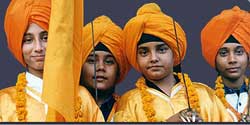 An exploratory workshop on ”The Sikhs in Europe.
History, Religion and Representation” was successfully held at Lund University, 13–14 June 2008. It was organised by Dr. Kristina Myrvold, Indic Religions, Dept. of History of Religion, Lund University. The workshop included discussions regarding possibilities to establish a joint European collaborative research projects on Sikhs in Europe. As a result of these discussions, a network was formed – the Sikhs-in Europe.org, with its own webpage. It is an independent and interdisciplinary academic network for students, teachers and scholars conducting studies of and research in all areas related to the Sikh history, religion and culture in Europe, and is managed by a collaborative group of scholars from different European universities.The aims of the network are to promote and establish academic cooperation and exchange between students, teachers and scholars from various disciplines who share the interest in Sikh Studies; to assist students and scholars by facilitating access to information about research projects and publications on the Sikhs in Europe; and to provide updated information about academic events and activities related to the Sikh Diasporas. More information on the network’s webpage. More information.
An exploratory workshop on ”The Sikhs in Europe.
History, Religion and Representation” was successfully held at Lund University, 13–14 June 2008. It was organised by Dr. Kristina Myrvold, Indic Religions, Dept. of History of Religion, Lund University. The workshop included discussions regarding possibilities to establish a joint European collaborative research projects on Sikhs in Europe. As a result of these discussions, a network was formed – the Sikhs-in Europe.org, with its own webpage. It is an independent and interdisciplinary academic network for students, teachers and scholars conducting studies of and research in all areas related to the Sikh history, religion and culture in Europe, and is managed by a collaborative group of scholars from different European universities.The aims of the network are to promote and establish academic cooperation and exchange between students, teachers and scholars from various disciplines who share the interest in Sikh Studies; to assist students and scholars by facilitating access to information about research projects and publications on the Sikhs in Europe; and to provide updated information about academic events and activities related to the Sikh Diasporas. More information on the network’s webpage. More information.
• Call for papers to the International Journal of South Asian Studies
The International Journal of South Asian Studies, published by Pondicherry University, India, has issued a call for Papers. The Journal promotes original academic research in humanities, culture, comparative religion, social sciences, industry, education, rural development, science & technology for development, ecology & environment, gender & development, security issues, ethnic conflicts, domestic politics, governance & social movements, grassroots governance etc. in South Asia. Original papers that fall within the scope of the Journal shall be submitted to the Executive Editor by E-mail on or before September 30, 2008. More information.
• DIIS researcher trained civil service staff in Bhutan
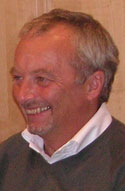 Dr. Neil Webster, senior researcher at the Danish Institute for International Studies (DIIS) in Copenhagen and head of the research unit Politics and Governance, has helped in designing a module on ‘Politics and Democracy’ that will be a part of the new training programme for the civil service trainees in the Himalayan kingdom of Bhutan. Dr. Webster has been involved in designing a part of this programme as part of a project to build democracy in Bhutan. In June 2008, he introduced and taught the new module at the Royal Institute of Management (RIM) in Thimphu. He also gave a lecture entitled ‘Democracy: Making Political Space for Development’ to the elected members of the National Assembly, appointed members of the National Council, and cabinet officials. More information.
Dr. Neil Webster, senior researcher at the Danish Institute for International Studies (DIIS) in Copenhagen and head of the research unit Politics and Governance, has helped in designing a module on ‘Politics and Democracy’ that will be a part of the new training programme for the civil service trainees in the Himalayan kingdom of Bhutan. Dr. Webster has been involved in designing a part of this programme as part of a project to build democracy in Bhutan. In June 2008, he introduced and taught the new module at the Royal Institute of Management (RIM) in Thimphu. He also gave a lecture entitled ‘Democracy: Making Political Space for Development’ to the elected members of the National Assembly, appointed members of the National Council, and cabinet officials. More information.
• More information about South Asia related
research at Swedish and Nordic universities
See SASNET’s page, http://www.sasnet.lu.se/research.html
• Anthropological Survey of India offers traing programs in Mysore
 The International School of Anthropology (iSA) at the Anthropological Survey of India (AnSI) in Mysore will conduct a program on ”Cross-cultural Studies and
Cross-cultural Sensitivity” in association with Freie University in
Berlin, Germany 6–15 October 2008 at Mysore. The training program is designed to benefit the students of
anthropology, psychology, philosophy, sociology, master of social
work, MBAs, development experts, development administrators, corporate
trainers, managers, administrators, and others interested in
cross-cultural studies. Prof. Christoph Wulf
and Prof. Klauss-Peter Koepping from Freie Universität, Dr. V. R. Rao,
Dr. Suresh Patil, Dr. M. Sreenathan from ASI, and a few other faculty from different institutions in
India,will conduct the program. Candidates should register for participation in the course before Monday 1 September 2008. More information (as a pdf-file).
The International School of Anthropology (iSA) at the Anthropological Survey of India (AnSI) in Mysore will conduct a program on ”Cross-cultural Studies and
Cross-cultural Sensitivity” in association with Freie University in
Berlin, Germany 6–15 October 2008 at Mysore. The training program is designed to benefit the students of
anthropology, psychology, philosophy, sociology, master of social
work, MBAs, development experts, development administrators, corporate
trainers, managers, administrators, and others interested in
cross-cultural studies. Prof. Christoph Wulf
and Prof. Klauss-Peter Koepping from Freie Universität, Dr. V. R. Rao,
Dr. Suresh Patil, Dr. M. Sreenathan from ASI, and a few other faculty from different institutions in
India,will conduct the program. Candidates should register for participation in the course before Monday 1 September 2008. More information (as a pdf-file).
The iSA will also be conducting two other programs on 'Development
Anthropology' and 'Diversity to Discovery', tentatively proposed from
17th to 30th November, 2008 and 12th to 26th February, 2009. Brochures for these courses will be available on the website www.ansi.gov.in soon.
• Applications invited for South Asia Studies Summer School in Australia
 The Australian National University (ANU) South Asia Studies Summer School (SASSS) is a week-long program of intensive research activities designed to bring together primarily PhD (but also a few masters) students working on South Asia throughout Australia, New Zealand and in other countries to exchange knowledge and experience at one of the leading centres on South Asian studies. SASSS provides a forum for research students to present their work, to build contacts and discuss their research with intellectual inputs from experienced researchers, to expose students to the work being done at the frontiers of South Asian studies by ANU faculty and invited guest faculty, and to provide for networking through the exchange of knowledge and experiences surrounding the study of South Asia. The program will also present opportunities for participants to make use of the rich resources on South Asia held at ANU libraries and the National Library of Australia. In addition, students will have the opportunity to immerse themselves in a range of social and cultural activities that will be held in ANU as part of the Asia-Pacific Week (with participants attending china, Japan, Korean, Pacific islands and east Timor studies summer schools). There is no registration fee, but also, ANU does not provide support for airfare or travel. Applicants must complete the online application before 3 October 2008 and will be advised of the result of their application by early November 2008. More information about the South Asia Studies Summer School.
The Australian National University (ANU) South Asia Studies Summer School (SASSS) is a week-long program of intensive research activities designed to bring together primarily PhD (but also a few masters) students working on South Asia throughout Australia, New Zealand and in other countries to exchange knowledge and experience at one of the leading centres on South Asian studies. SASSS provides a forum for research students to present their work, to build contacts and discuss their research with intellectual inputs from experienced researchers, to expose students to the work being done at the frontiers of South Asian studies by ANU faculty and invited guest faculty, and to provide for networking through the exchange of knowledge and experiences surrounding the study of South Asia. The program will also present opportunities for participants to make use of the rich resources on South Asia held at ANU libraries and the National Library of Australia. In addition, students will have the opportunity to immerse themselves in a range of social and cultural activities that will be held in ANU as part of the Asia-Pacific Week (with participants attending china, Japan, Korean, Pacific islands and east Timor studies summer schools). There is no registration fee, but also, ANU does not provide support for airfare or travel. Applicants must complete the online application before 3 October 2008 and will be advised of the result of their application by early November 2008. More information about the South Asia Studies Summer School.
• More information about South Asia related
education at Swedish and Nordic universities
See SASNET’s page, http://www.sasnet.lu.se/education.html
• 14th Himalayan Languages Symposium in Göteborg
The 14th Himalayan Languages Symposium (HLS) is held in Göteborg 21–23 August 2008. The Himalayan Languages Symposium brings together scholars working on languages and language communities of the greater Himalayan region: north-western and north-eastern India, Nepal, Bhutan and the Tibetan Plateau, northern Burma and Sichuan, and Nuristan, Baltistan and the Burushaski-speaking area in the west. Scott DeLancey from the University of Oregon, USA, will be the keynote speaker. The 14th HLS is organised by the Dept. of Linguistics, Göteborg University.
• Potsdam workshop on Indian Traditions of Language Studies
The
Eleventh International Conference on the History of the Language
Sciences will be held in Potsdam, Germany,
28 August – 2
September 2008. The conference, organised by Universität Potsdam,
includes a separate workshop on ”Indian Traditions of Language Studies”,
to be convened by Jean-Luc Chevillard from CNRS – Université Paris
7, and Emilie Aussant from Université de Bordeaux III, France. More
information.
 • Mohammad Yunus key speaker at Fredskorpset biannual forum in Oslo
• Mohammad Yunus key speaker at Fredskorpset biannual forum in Oslo
The government funded Norwegian organisation Fredskorpset (FK) organises its biannual Forum conference 4–7 September 2008. The FK Forum 2008 includes an International Advisory Concil Meeting (IACM) with representatives from more than 60 countries, and it will have an overall thematic focus on ”Dialogue & Development”. The Nobel Peace Prize Laureate Mohammad Yunus (photo) will be a key speaker in the so-called FK North-South Forum 2008, that will be held on the first day of the conference in Oslo. On the 6th and 7th September FK will invite all partners to attend seminars at MS Pearl of Scandinavia. On board the ship, travelling between Oslo and Copenhagen, three parallel seminars will be held. They will be divided in accordance to FKs programme lines: South-South programme, Youth programme and North-South programme. More information.
• International symposium on Informal Cities to be held in Stockholm
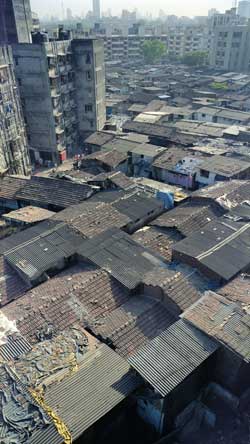 An international symposium and an exhibition on urban growth titled ”Informal Cities – The Stockholm
Urban Think Tank” will be organised in Nacka/Stockholm 6–8 September 2008. It is a collaboration project between the Royal University College of Fine Arts, SHACK/Slum Dwellers International and the Swedish International Development Agency’s (Sida) Division for Urban Development. Sixteen artists, filmmakers and architects organize the symposium and parallel exhibition as part of the post-graduate program Art & Architecture at the Royal University College of Fine Arts (KKH) in Stockholm.
An international symposium and an exhibition on urban growth titled ”Informal Cities – The Stockholm
Urban Think Tank” will be organised in Nacka/Stockholm 6–8 September 2008. It is a collaboration project between the Royal University College of Fine Arts, SHACK/Slum Dwellers International and the Swedish International Development Agency’s (Sida) Division for Urban Development. Sixteen artists, filmmakers and architects organize the symposium and parallel exhibition as part of the post-graduate program Art & Architecture at the Royal University College of Fine Arts (KKH) in Stockholm.
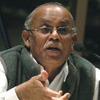 The exhibition and symposium are free of charge but registration is required for September 7 and 8. Informal Cities – The Stockholm
Urban Think Tank is a meeting place where representatives of grass-root organizations from seven informal cities will share their experience together with renowned scholars and activists such as Saskia Sassen, David Satterthwaite, Barbara Southworth, Sheela Patel and Jockin Arputham (photo to the left). Screenings, discussions, workshops and presentations will be held during a Symposium while the cities, the inhabitants and their stories will be presented in a parallel Exhibition. Activists, decision makers, stakeholders, architects, politicians, artists, and researchers will be invited to share their experience and participate in a common effort to formulate possible solutions for a socially, environmentally and economically sustainable urban development. Venue: Dieselverkstaden, Marcusplatsen 17, Sickla, Nacka. More information.
The exhibition and symposium are free of charge but registration is required for September 7 and 8. Informal Cities – The Stockholm
Urban Think Tank is a meeting place where representatives of grass-root organizations from seven informal cities will share their experience together with renowned scholars and activists such as Saskia Sassen, David Satterthwaite, Barbara Southworth, Sheela Patel and Jockin Arputham (photo to the left). Screenings, discussions, workshops and presentations will be held during a Symposium while the cities, the inhabitants and their stories will be presented in a parallel Exhibition. Activists, decision makers, stakeholders, architects, politicians, artists, and researchers will be invited to share their experience and participate in a common effort to formulate possible solutions for a socially, environmentally and economically sustainable urban development. Venue: Dieselverkstaden, Marcusplatsen 17, Sickla, Nacka. More information.
 |
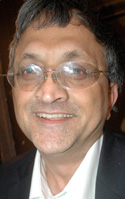 |
| Gayatri Spivak and Ramachandra Guha. | |
• Copenhagen conference on Asia in the 21st Century
A one-day conference titled 'Asia in the 21st Century – New perspectives' is held at Copenhagen University on Tuesday 16 September 2008, 13.30–17.30. It is a joint conference to celebrate the launch of Copenhagen University's new Asia focus, the so-called Asian Dynamics Initiative (ADI – more information), and the 40th anniversary of the Nordic Institute of Asian Studies (NIAS). Four leading international scholars on Asia will deliver the keynote speeches addressing a range of topics that mark Asia in the 21st century. They include Professor Gayatri C. Spivak, Columbia University, USA, who will talk about ”The Subject of an Asian Culture”; and Dr. Ramachandra Guha, Bangalore, India (but currently Arne Naess Professor at the University of Oslo, Norway) who will talk about ”Will India Become a Superpower?” Go for the 'Asia in the 21st Century – New Perspective' conference.
• international conference on Ecology and Power in Lund
An international conference on ”Ecology and Power. Critical perspectives on the discourse on sustainability and resilience” will be held at Lund University 17–19 September 2008. It is hosted by Lund University’s Human Ecology Division, and funded by the Bank of Sweden Tercentenary Foundation. In a session focusing on ”Critical interventions in political ecology”, the keynote lectures are given by Nancy Peluso from University of California, and Michael Sheridan from Middlebury College, Vermont, USA. Dr. Pernille Gooch from the Human Ecology Division, Lund University, will talk about ”Scientific vs. Local Knowledge: Power and Sustainability in the Central Indian Himalayas”, and Dr. Beppe G. Karlsson, Dept. of Cultural Anthropology, Uppsala University, will talk about ”Nuclear Lives: Uranium Mining in India”.
Seats will be reserved for preregistered participants.
Requests for preregistration should be directed to Prof. Alf Hornborg no later than September 1, 2008. See the full programme (as a pdf-file)
 • China and India in Africa, theme for Uppsala conference
• China and India in Africa, theme for Uppsala conference
An International conference on ”China and India in Africa: New Strategic Encounters” is held in Uppsala 22–23 September 2008. It is organised by the Nordic Africa Institute. The co-conveners are Fantu Cheru (Globalisation and Africa, Research Director), Yenkong Ngangjoh-Hodu (Globalisation and Trade Cluster) and Cyril Obi (Conflict Cluster). Over the last decade or so, China and India have established themselves as increasingly influential players across Africa. Given the large scale and scope of their engagement, this may turn out to be one of the most significant developments for the region in recent years. This development poses both threats and provides opportunities for African countries. The aim of the conference is to look at the opportunities and challenges posed by the increasing presence of China and India in Africa. More information.
• PhD Course on
International Environmental Engineering Sciences in Kathmandu
A PhD Course on
International Environmental Engineering Sciences for Eco-Cyclic Systems will be held in Kathmandu 16-24 October 2008. The theme for the course will be Solid Waste and Water Management, and will later be followed by another two PhD courses dealing with ”Air Pollution and Soil Remediation” (to be held in either Bangladesh, Thailand, Malaysia or India) and ”Chemical Analytical Studies – Sampling and Analyses in Practice” to be held in Sweden.
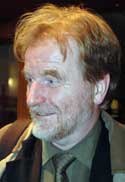 The Kathmandu course, equal to 8 ECTS, is organised by the Swedish Centre of Excellence for Support of Development of a Sustainable Society in Nepal, a collaboration initiative between Kathmandu University, Tribhuvan University, Asian Institute of Technology in Bangkok, Anna University in Chennai, and the Swedish so-called Laqua group (a consortium formed by researchers from the School of Pure & Applied Natural Sciences, Kalmar University; the School of Engineering, Kristianstad University; and the Dept. of Analytical Chemistry, Lund University). The Centre is funded by the Swedish International Development Cooperation Agence Sida. The objective behind the course is to increase the knowledge and the scientific level of the PhD students from Sweden and from Nepal concerning waste and water management problems in developing countries and to increase the research cooperation with South East Asia with the help of the knowledge of the Laqua Research Group, and researchers from the Sida ARPET program. Registration to the course should be made to Professor William Hogland (photo to the right) not later than Monday 15 September 2008. Full information about the course (as a pdf-file).
The Kathmandu course, equal to 8 ECTS, is organised by the Swedish Centre of Excellence for Support of Development of a Sustainable Society in Nepal, a collaboration initiative between Kathmandu University, Tribhuvan University, Asian Institute of Technology in Bangkok, Anna University in Chennai, and the Swedish so-called Laqua group (a consortium formed by researchers from the School of Pure & Applied Natural Sciences, Kalmar University; the School of Engineering, Kristianstad University; and the Dept. of Analytical Chemistry, Lund University). The Centre is funded by the Swedish International Development Cooperation Agence Sida. The objective behind the course is to increase the knowledge and the scientific level of the PhD students from Sweden and from Nepal concerning waste and water management problems in developing countries and to increase the research cooperation with South East Asia with the help of the knowledge of the Laqua Research Group, and researchers from the Sida ARPET program. Registration to the course should be made to Professor William Hogland (photo to the right) not later than Monday 15 September 2008. Full information about the course (as a pdf-file).
• Pomona conference on Rediscovering Gandhian Wisdom
 An International Conference on Nonviolence, titled “Rediscovering Gandhian Wisdom: Building a Peaceful Future” will be held at the
California State Polytechnic University in
Pomona, USA, on 17–19
October 2008. The conference organised by the university’s Ahims Center highlights include distinguished speakers such as Rajmohan Gandhi, grandson and biographer of the Mahatma; Samdhong Rinpoche – scholar-monk and the prime minister of Tibet government-in-exile; Bernard Lafayette Jr. – who worked with Martin Luther King Jr. and led several campaigns during the Civil Rights Movement, and Akeel Bilgrami, Anthony Parel, Lloyd and Susanne Rudolph, Anil Sadgopal and numerous outstanding scholars and professionals; sessions on relevance of Gandhian wisdom to education, business, and sustainability; workshops and seminars ; concert of devotional songs (bhajans) from Gandhi’s prayer meetings; and a Book Exhibition. Early and advance registration rates and concessional registration for school teachers, college faculty, students and staff, and the non-profit sector. More information.
An International Conference on Nonviolence, titled “Rediscovering Gandhian Wisdom: Building a Peaceful Future” will be held at the
California State Polytechnic University in
Pomona, USA, on 17–19
October 2008. The conference organised by the university’s Ahims Center highlights include distinguished speakers such as Rajmohan Gandhi, grandson and biographer of the Mahatma; Samdhong Rinpoche – scholar-monk and the prime minister of Tibet government-in-exile; Bernard Lafayette Jr. – who worked with Martin Luther King Jr. and led several campaigns during the Civil Rights Movement, and Akeel Bilgrami, Anthony Parel, Lloyd and Susanne Rudolph, Anil Sadgopal and numerous outstanding scholars and professionals; sessions on relevance of Gandhian wisdom to education, business, and sustainability; workshops and seminars ; concert of devotional songs (bhajans) from Gandhi’s prayer meetings; and a Book Exhibition. Early and advance registration rates and concessional registration for school teachers, college faculty, students and staff, and the non-profit sector. More information.
• NORASIA conference focuses on Asian Creativity
in Culture and Technology
 The Norwegian Network for Asian Studies invites for its 5th biannual NORASIA conference, to be held in Trondheim 12–16 November 2008. The theme for the conference will be “Asian Creativity
in Culture and Technology”, and it will be open to Nordic and international scholars and
PhD students as well as other specialists with an interest in and
knowledge about Asian Creativity.
Furthermore, and in line with the traditions of the Norwegian
Asia Network and the NIAS SUPRA programme, Master students
are also invited to participate and submit academically qualified
papers, even outside the proposed themes of the conference. Associate Professor Smriti Srinivas from the Dept. of Anthropology, University of California,
Davis, USA, will be one of the keynote speakers. The suggested topic for her speech is ”Landscapes of Urban Memory: The Sacred and the Civic in
Bangalore, India’s High Tech City”. Another keynote speaker is Martin Kenney, who will speak on 'Where Is Creative Entrepreneurship Happening in China and India: Evidence from Venture Capital Investment Patterns'. The event is organised in collaboration with the Nordic Institute of Asian Studies (NIAS), the Nordic NIAS Council (NNC), and the Norwegian University of Science and Technology (NTNU) in Trondheim (hosting the conference). More information.
The Norwegian Network for Asian Studies invites for its 5th biannual NORASIA conference, to be held in Trondheim 12–16 November 2008. The theme for the conference will be “Asian Creativity
in Culture and Technology”, and it will be open to Nordic and international scholars and
PhD students as well as other specialists with an interest in and
knowledge about Asian Creativity.
Furthermore, and in line with the traditions of the Norwegian
Asia Network and the NIAS SUPRA programme, Master students
are also invited to participate and submit academically qualified
papers, even outside the proposed themes of the conference. Associate Professor Smriti Srinivas from the Dept. of Anthropology, University of California,
Davis, USA, will be one of the keynote speakers. The suggested topic for her speech is ”Landscapes of Urban Memory: The Sacred and the Civic in
Bangalore, India’s High Tech City”. Another keynote speaker is Martin Kenney, who will speak on 'Where Is Creative Entrepreneurship Happening in China and India: Evidence from Venture Capital Investment Patterns'. The event is organised in collaboration with the Nordic Institute of Asian Studies (NIAS), the Nordic NIAS Council (NNC), and the Norwegian University of Science and Technology (NTNU) in Trondheim (hosting the conference). More information.
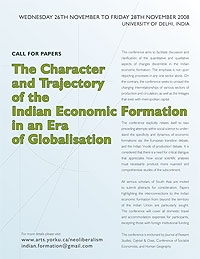 • Delhi conference on Trajectory of
the Indian Economic Formation
• Delhi conference on Trajectory of
the Indian Economic Formation
An international conference on ”The Character and Trajectory of
the Indian Economic Formation in an Era of Globalisation” will be held in New Delhi, India 26–28 November 2008. The aim of the conference, endorsed by Journal of Peasant
Studies, Capital & Class, Conference of Socialist
Economists, and Human Geography, is to facilitate discussion and
clarification of the quantitative and qualitative aspects of the
trajectories discernible in the Indian economic formation. The focus
is not to characterise processes in any one sector alone. On the
contrary, this conference seeks to unravel the changing
interrelationships of various sectors of production and circulation,
as well as the linkages that exist with metropolitan capital.The conference invites paper abstracts from all serious students of
South Asia's changing political economy. Keynote speakers for the conference include K.M. Shrimali, Tom Brass,
Hiren Gohain, R.S. Rao, and Irfan Habib. Deadline for abstract submissions is 31 August 2008. More information.
• Riverside conference on Sikhism in a global context
A conference on "Sikhism in its Global Context" will be held at at University of California, Riverside, USA, on 4–6 December 2008. It will be hosted by the Dr. Jasbir Singh Saini Endowed Chair in Sikh and Punjabi Studies in the Religious Studies Department at the University of California, Riverside, in collaboration with the Sikh Foundation and Dr. Jasbir Singh Saini Trust. The conference will commemorate the 300th Anniversary of the Installation of the Guru Granth Sahib in 1708 and focus on the shifting paradigms in the study of the Sikh tradition and address recent developments in the field. More information.
• Kerala workshop on Sustainable Utilization of Tropical Plant Bio-mass
An international seminar and workshop on ”Sustainable Utilization of Tropical Plant Bio-mass” will be held in Thiruvananthapuram, Kerala State, India, 15–16 December 2008. It will be jointly organized by the Centre for Bioinformtics, and the Department of Environmental Sciences of Kerala University; Kerala Agricultural University; Kerala State Council of Science Technology and Environment; the SASNET Fermented Foods (based at Anand Agricultural University, Gujarat); and the Dept. of Applied Nutrition, Lund University. The aim of the conference is to present a platform for discussing sustainable utilization of the tropical plant bio mass addressing not only to the day to day needs of the human beings regarding food, shelter, health and social well-being but also covering aspects of biodiversity, environmental hazards and climatic changes in a long term perspective. Delegates are expected from India, Sri Lanka, Sweden and many other countries. More information.
• Kathmandu conference on Challenges of Governance in South Asia
An International Conference on ”Challenges of Governance in South Asia” will be held in Kathmandu, Nepal 15–16 December 2008. It focuses oin the fact that, in spite of different programs and policies of reforms and reorganizations to streamlining public administration, governance in the South Asian countries has failed to address adequately such issues as reducing poverty, equality of access to public services and fairness, security and safety of citizens, democratic institution building, participation in the decision making, and implementation of policies. The conference is organized under the project “Governance Matters: Assessing, Diagnosing and Addressing Challenges of Governance in Nepal” – a joint research project of the Central Department of Public Administration,Tribhuvan University, Nepal; and the Department of Administration and Organization Theory, University of Bergen, Norway. A number of scholars, experts, and practitioners as well as invited key note speakers will participate in the conference. Deadline for submitting abstracts/proposals is 1 October 2008. Full information about the conference.
• Seminar on Understanding Varanasi through the Ages
An International Seminar on ”Understanding Varanasi through the Ages: Continuity, Change and Globalization” will be held in Varanasi, India 5–7 January 2009. The conference is hosted by the Dept. of History, Faculty of Social Sciences, Banaras Hindu University (BHU). Scholars across the world, cutting across disciplines
are requested to send their papers, abstracts should be sent before 30 September 2008. More information (as a pdf- file)
• Second Rethinking Religion in India conference to be held in Delhi
 The Second International conference on ”Rethinking Religion in India” will be held in Delhi, India, 10–13 January 2009. Being part of a five-year conference cluster – aimed at developing an alternative theoretical framework to understand the Indian religions and traditions – the 2009 conference is the initiative of a group of intellectuals who thinks the clash between secularism and Hindutva is pernicious. The first conference was held in January 2008 (A number of interviews, presentations and debates from the first conference, Rethinking Religion in India I, can be watched on youtube). Within the general aims of the five-year conference cluster, this second conference intends to move beyond the framework which presents liberal secularism as the only possible solution to communal strife. Under the motto of "Rethinking Secularism," it will examine the limitations of the conceptual framework shared by Hindutva and secularism. The conference is organised by Research Centre Vergelijkende Cultuurwetenschap at Ghent University, Belgium; the India Platform UGent, also based at Ghent University; the Centre for the Study of Local Cultures at Kuvempu University, Shimoga, India; and the Karnataka Academy of Social Sciences and Humanities in India. Calls are now given for abstracts to the parallel paper sessions dealing with (1) Indian Religion and the Issue of Conversion; (2) The Caste System and Indian Religion; (3) Colonialism and Religion in India; and (4) Religion and Law in India. More information
The Second International conference on ”Rethinking Religion in India” will be held in Delhi, India, 10–13 January 2009. Being part of a five-year conference cluster – aimed at developing an alternative theoretical framework to understand the Indian religions and traditions – the 2009 conference is the initiative of a group of intellectuals who thinks the clash between secularism and Hindutva is pernicious. The first conference was held in January 2008 (A number of interviews, presentations and debates from the first conference, Rethinking Religion in India I, can be watched on youtube). Within the general aims of the five-year conference cluster, this second conference intends to move beyond the framework which presents liberal secularism as the only possible solution to communal strife. Under the motto of "Rethinking Secularism," it will examine the limitations of the conceptual framework shared by Hindutva and secularism. The conference is organised by Research Centre Vergelijkende Cultuurwetenschap at Ghent University, Belgium; the India Platform UGent, also based at Ghent University; the Centre for the Study of Local Cultures at Kuvempu University, Shimoga, India; and the Karnataka Academy of Social Sciences and Humanities in India. Calls are now given for abstracts to the parallel paper sessions dealing with (1) Indian Religion and the Issue of Conversion; (2) The Caste System and Indian Religion; (3) Colonialism and Religion in India; and (4) Religion and Law in India. More information
• Delhi conference on World’s Religions After September 11
A conference on ”World’s Religions After September 11 – An Asian Perspective” is organized in New Delhi 17–20 January 2009. It is organised by the recently established Centre for the Comparative Study of Religions and Civilizations at the Jamia Millia Islamia University in New Delhi, under the direction of Professor Madhu Khanna. The conference proposes to bring together a distinguished community of scholars and academics, leading voices and representatives from different faiths, the media and NGOs working in the field of peace-building.
One major outcome would be an Asian reflection on Human Rights discourse, in the form of a proposed Universal Declaration of Human Rights by the World’s Religions, as a supplement to the UN Declaration of Human Rights.
• Association for the Study of Persianate Societies conference in Lahore
The Association for the Study of Persianate Societies (ASPS), invites to its fourth Biennial Convention to be held in Lahore, Pakistan, 27 February – 2 March 2009. Deadline for submission of abstracts is
September 30, 1998. All humanities and social science disciplines
related to Persianate Societies are welcome. ASPS is a non-governmental, professional organization for researchers and scholars interested in the culture and civilization of the Persian-speaking societies and related areas in the Iranian civilizational area. It is based at the University of Minnesota Duluth, USA. More information.
• Other conferences connected to South Asian
studies arranged all over the World
See SASNET’s page, http://www.sasnet.lu.se/conferences.html#conf
Important lectures and seminars in Scandinavia
• Uppsala mini-symposium
on ribosome assisted protein folding
A one day mini-symposium
on ”The Ribosome Assisted Protein Folding and Misfolding Diseases” will be held in Uppsala on Wednesday 27 August 2008. It is organised by the Dept. of Cell & Molecular Biology, Biomedical Center (BMC), Uppsala University. Among the participants are Chanchal Das Gupta, Professor at the Dept. of Biophysics,
University of Calcutta, Kolkata, India, who will talk about ”Protein Folding by Ribosome – A Journey in the Wilderness”. Venue: BMC, Boströmrummet, A11, first floor. Full program.
• Walter Andersen lectures about relations between India and Pakistan
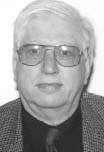 Dr. Walter Andersen, Associate Director of the South Asia Studies Program,
Paul H. Nitze School of Advanced Studies, Johns Hopkins University,
Washington, D.C., USA, will hold a seminar on ”Islamistic Terrorism and Relations between India and Pakistan” in Copenhagen on Thursday 28 August 2008, 13.00–15.00. The seminar is jointly organised by the Danish Institute for International Studies (DIIS) and the Nordic
Institute of Asian Studies (NIAS). Dr. Anderssen will focus on the Indo-Pakistani relationship that has deteriorated significantly over the
past several months. This was dramatically underscored by the recent
official Indian accusation that Pakistan's military intelligence arm
helped plan the recent bombing at the Indian Embassy in Kabul that
killed two senior embassy officials. Three significant factors shape the
Indo-Pakistani relationship and the three cumulatively work against a
substantial improvement in bilateral ties: (1) asymmetry in size,
population and wealth in India's favor; (2) fragile coalition
governments in both countries; and (3) increasing influence of domestic
forces in India and Pakistan. He will be introduced by Lars Erslev Andersen and Stig Toft Madsen, Senior
Researchers at DIIS and NIAS respectively. Participation is free of charge, but registration is required. Please
use the online registration form no
later than Wednesday, 27 August 2008 at 12.00 noon. Venue: DIIS Main Auditorium, Strandgade 71, ground floor, 1401 Copenhagen K. More information.
Dr. Walter Andersen, Associate Director of the South Asia Studies Program,
Paul H. Nitze School of Advanced Studies, Johns Hopkins University,
Washington, D.C., USA, will hold a seminar on ”Islamistic Terrorism and Relations between India and Pakistan” in Copenhagen on Thursday 28 August 2008, 13.00–15.00. The seminar is jointly organised by the Danish Institute for International Studies (DIIS) and the Nordic
Institute of Asian Studies (NIAS). Dr. Anderssen will focus on the Indo-Pakistani relationship that has deteriorated significantly over the
past several months. This was dramatically underscored by the recent
official Indian accusation that Pakistan's military intelligence arm
helped plan the recent bombing at the Indian Embassy in Kabul that
killed two senior embassy officials. Three significant factors shape the
Indo-Pakistani relationship and the three cumulatively work against a
substantial improvement in bilateral ties: (1) asymmetry in size,
population and wealth in India's favor; (2) fragile coalition
governments in both countries; and (3) increasing influence of domestic
forces in India and Pakistan. He will be introduced by Lars Erslev Andersen and Stig Toft Madsen, Senior
Researchers at DIIS and NIAS respectively. Participation is free of charge, but registration is required. Please
use the online registration form no
later than Wednesday, 27 August 2008 at 12.00 noon. Venue: DIIS Main Auditorium, Strandgade 71, ground floor, 1401 Copenhagen K. More information.
• 2008 Arne Næss Chair Symposium
The Centre for Development and the Environment (SUM) at the University of Oslo, invites to the 2008 Arne Næss Chair Symposium, with the theme ”60 Years After Gandhi: Can Civil Society Civilize the World?”, on Friday 29 August 2008, 09.00–16.00. The participants include Dr. Ramachandra Guha, author of ”India after Gandhi”;
Dan Banik, SUM;
Joan Martinez Alier, The Autonomous University of Barcelona; and
Fazlun Khalid, Islamic Foundation for Ecology and Environmental Sciences. Limited seating. Interested persons should register their participation in beforehand. Venue: Norwegian Nobel Institute, Henrik Ibsens gate 51, Oslo. More information.
• Afghanistan seminar in Oslo
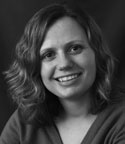 The Norwegian Institute of International Affairs (NUPI) invites to an informal seminar titled ”Afghanistan: Aspects of the post-war political settlement” to be held in Oslo on Wednesday 3 September 2008, from 11.30. Dipali Mukhopadhyay, doctoral candidate at The Fletcher School of Law & Diplomacy at Tufts University, will speak about ”Warlords as governors – opportunities and pitfalls”, and
Stina Torjesen (photo to the right), Senior Research Fellow at NUPI, will speak about ”Warlords and networks: towards domination of the post war economy?”. Kristian Berg Harpviken, Deputy Director for the International Peace Research Institute (PRIO), will be the discussant during the following debate. The seminar looks at political and economic developments in Afghanistan and seeks to indentify key trends and actors. The two presenters have recently returned from extensive field work in Afghanistan and will share their preliminary findings and insights. Venue: NUPI, C.J. Hambros plass 2 D, Oslo. More information.
The Norwegian Institute of International Affairs (NUPI) invites to an informal seminar titled ”Afghanistan: Aspects of the post-war political settlement” to be held in Oslo on Wednesday 3 September 2008, from 11.30. Dipali Mukhopadhyay, doctoral candidate at The Fletcher School of Law & Diplomacy at Tufts University, will speak about ”Warlords as governors – opportunities and pitfalls”, and
Stina Torjesen (photo to the right), Senior Research Fellow at NUPI, will speak about ”Warlords and networks: towards domination of the post war economy?”. Kristian Berg Harpviken, Deputy Director for the International Peace Research Institute (PRIO), will be the discussant during the following debate. The seminar looks at political and economic developments in Afghanistan and seeks to indentify key trends and actors. The two presenters have recently returned from extensive field work in Afghanistan and will share their preliminary findings and insights. Venue: NUPI, C.J. Hambros plass 2 D, Oslo. More information.
• Copenhagen lecture about Poverty as Biopolitics
Professor Akhil Gupta from University of California, Los Angeles, USA will lecture on ”Poverty as Biopolitics” at the University of Copenhagen on Wednesday 3 September 2008, 10.15–12.00. The seminar is organised by the Dept. of Anthropology. Venue: room 1.1.36, Copenhagen University, CSS, Øster Farimagsgade 5.
• Naila Kabeer lectures on Gender Equality in Göteborg
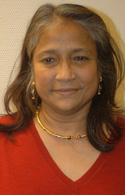 Professor Naila Kabeer from the Institute of Development Studies (IDS), Sussex University, UK, will hold a lecture on ”Passion, Pragmatism and Politics of Gender Advocacy: Nordic approaches to gender and development” in Göteborg on Friday 12 September 2008, 10.15–12.00. The seminar, organised by the School of Global Studies at Göteborg University, is based on material from a book ”Global Perspectives on Gender Equality: Reversing the Gaze”, edited by Naila Kabeer, Agneta Stark and Edda Magnus in December 2007, and published by UNRISD. In the book, scholars from the global South and post-socialist economies were brought together to reflect on Nordic approaches to gender equality. Venue: Annedalsseminariet, Övre Husargatan. 34/Seminariegatan 1, Göteborg.
Professor Naila Kabeer from the Institute of Development Studies (IDS), Sussex University, UK, will hold a lecture on ”Passion, Pragmatism and Politics of Gender Advocacy: Nordic approaches to gender and development” in Göteborg on Friday 12 September 2008, 10.15–12.00. The seminar, organised by the School of Global Studies at Göteborg University, is based on material from a book ”Global Perspectives on Gender Equality: Reversing the Gaze”, edited by Naila Kabeer, Agneta Stark and Edda Magnus in December 2007, and published by UNRISD. In the book, scholars from the global South and post-socialist economies were brought together to reflect on Nordic approaches to gender equality. Venue: Annedalsseminariet, Övre Husargatan. 34/Seminariegatan 1, Göteborg.
• Ramachandra Guha holds Asianettverket 2008 Annual Lecture
On Monday 15 September 2008, the Norwegian Asian Network (Asianettverket) 2008 Annual Lecture will be given by prominent Historian Dr. Ramachandra Guha, currently holding the Arne Næss professorship at the Centre for Development and Environment (SUM), University of Oslo. The title of Dr. Guha’s lecture is ”Biography as History: Understanding Asia through its Remarkable Characters”. The lecture will be held between 14–16 at the University of Oslo. More information.
Business and Politics
• Meeting Point India conference in Stockholm
IBC Euroforum Sweden organises a two-day business conference titled ”Meeting Point India” in Stockholm 25–26 November 2008. The conference is organised in collaboration with the Swedish Trade Council, and includes lectures by several representatives from leading Swedish companies that are established in the Indian market. Mr. Bazmi Husain, Vice President, ABB Corporate Research, will talk about the establishing of ABB Corporate Research RnD unit in India in 2002. Mr. Gautam Bhattacharyya from the Swedish Ministry of Foreign Affairs (just completed a four-year tenure at the Embassy in New Delhi) will talk about Indian Politics and the prevailing social climate. Ms. Ann-Charlotte Sukhia, ACS Intercultural Education, will talk about the intercultural competence that is needed in order to make business in India.
• Information about South Asia related business and politics in Sweden
See SASNET's page, http://www.sasnet.lu.se/polbuss.html
South Asia related culture in Scandinavia
• Baul Shilpi once again on tour in Sweden
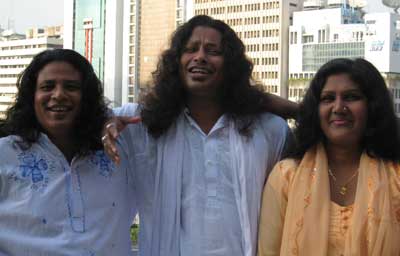 This group of baul singers from Bangladesh, who made a great success during their Sweden tour in 2003, again visits Sweden in the end of August 2008. The group, calling themselves ”God’s scapegraces” (Guds vildhjärnor), consists of seven persons – four baul singers, two other musicians, plus the tour leader Sirajul Islam. They have been invited to Sweden by Dr. Christina Nygren, Dept. of Musicology and Theatre Studies,
Stockholm University. On Tuesday 26 August at 19.00, a Baul Shilpi performance will be held at the theatre Sagohuset, Revingegatan 8, Lund. Earlier the same day, SASNET organises a seminar on baul music and other forms of Bengali folk culture with Dr. Nygren (who wrote a wonderful book, ”Brokiga Bengalen” on this topic in 2006). The seminar (more information above) will also be held at Sagohuset at 15.00–17.00.
This group of baul singers from Bangladesh, who made a great success during their Sweden tour in 2003, again visits Sweden in the end of August 2008. The group, calling themselves ”God’s scapegraces” (Guds vildhjärnor), consists of seven persons – four baul singers, two other musicians, plus the tour leader Sirajul Islam. They have been invited to Sweden by Dr. Christina Nygren, Dept. of Musicology and Theatre Studies,
Stockholm University. On Tuesday 26 August at 19.00, a Baul Shilpi performance will be held at the theatre Sagohuset, Revingegatan 8, Lund. Earlier the same day, SASNET organises a seminar on baul music and other forms of Bengali folk culture with Dr. Nygren (who wrote a wonderful book, ”Brokiga Bengalen” on this topic in 2006). The seminar (more information above) will also be held at Sagohuset at 15.00–17.00.
While in Sweden, Baul Shilpi will also perform in Södertälje on Saturday 23 August, during the Kulturfestival/Kringelfestivalen, at Stockholm University (Dept. of Oriental Languages, Kräftriket) on Wednesday 27 August at 19.00, and at Kulturhuset in Ytterjärna on Saturday 30 August.
More information about Baul Shilpi (in Swedish only).
• Stockholm Choral Concert for Peace and Reconciliation
 A Choral Concert for Peace and Reconciliation titled Vox Pacis – The Voice of Peace is organised in Stockholm 19–23 August 2008. It is performed by singers and choirs from the different world’s religions, including Islam, Buddhism and Hinduism. Vox Pacis has also included several concerts in the two weeks preceding the choral concert, with performances by the Indian Tabla maestro Debashish Mukherjee (on Sunday 17 August) and by Tibetan throat singing monks from the Gyatso monastery in Dharamsala, India. Other South Asia related singers involved in the project include Pasang Dolma from Dharamsala (now living in New York),
and Shipra Nandy from Kolkata (now living in Sweden). More information.
A Choral Concert for Peace and Reconciliation titled Vox Pacis – The Voice of Peace is organised in Stockholm 19–23 August 2008. It is performed by singers and choirs from the different world’s religions, including Islam, Buddhism and Hinduism. Vox Pacis has also included several concerts in the two weeks preceding the choral concert, with performances by the Indian Tabla maestro Debashish Mukherjee (on Sunday 17 August) and by Tibetan throat singing monks from the Gyatso monastery in Dharamsala, India. Other South Asia related singers involved in the project include Pasang Dolma from Dharamsala (now living in New York),
and Shipra Nandy from Kolkata (now living in Sweden). More information.
• Indian Cultural Festival organised in Stockholm
An Indian Cultural Festival was successfully organised in Stockholm on 9–10 August 2008. It was organised by the Embassy of India in collaboration with Mäster Olofsgården, and included musical concerts by the tabla players Suranjana
Ghosh and Debasish Mukherejee; dance performances by Veronica Tjerned, Kristina
Borgkrans and Usha Balasundaram with students; Bollywood dancing, fashion show and cooking classes. The programme also included lectures by Mr. David Ståhl on ”Hinduism – reinkarnation, karma and IT”, and by Ms.
Anne-Charlotte Sukhia on ”The meetingpoint beween two cultures”.
• More information about South Asia related culture
in Sweden and Scandinavia
See SASNET’s page, http://www.sasnet.lu.se/culture.html
New and updated items on SASNET web site
• Swedish departments where research on
South Asia is going on:
Constantly added to the list of research environments at Swedish
universities, presented by SASNET. The full list now includes 230 departments,
with detailed descriptions of the South Asia related research and education
taking place! Go to http://www.sasnet.lu.se/environment.html
ƒ Department of Systems Ecology/Stockholm Resilience Centre, Stockholm University
• Useful travelling information
Look at http://www.sasnet.lu.se/travelling.html.
Updated travel advises from the The British Foreign & Commonwealth
Office about safety aspects on travelling to the countries of
South Asia.
Best regards,
Sidsel Hansson Lars Eklund
SASNET/Swedish South Asian Studies Network
SASNET is a national network
for research, education, and information about South Asia, based at Lund
University. The aim is to encourage and promote an open and dynamic networking
process, in which Swedish researchers co-operate with researchers in South
Asia and globally.
The network is open to all sciences. Priority is given to co-operation
between disciplines and across faculties, as well as institutions in the
Nordic countries and in South Asia. The basic idea is that South Asian
studies will be most fruitfully pursued in co-operation between researchers,
working in different institutions with a solid base in their mother disciplines.
The network is financed by Sida (Swedish
International Development Cooperation Agency) and by Lund
University.
Postal address: SASNET – Swedish South Asian Studies Network,
Scheelevägen 15 D, SE-223 70 Lund, Sweden
Visiting address: Ideon Research Park, House Alpha 1 (first floor,
room no. 2040), in the premises of the Centre for East and South
East Asian Studies at Lund University (ACE).
Phone: + 46 46 222 73 40
Fax: + 46 46 222 30 41
E-mail: sasnet@sasnet.lu.se
Web site:
http://www.sasnet.lu.se
SASNET - Swedish South Asian Studies Network/Lund
University
Address: Scheelevägen 15 D, SE-223 70 Lund, Sweden
Phone: +46 46 222 73 40
Webmaster: Lars Eklund
Last updated
2011-01-12